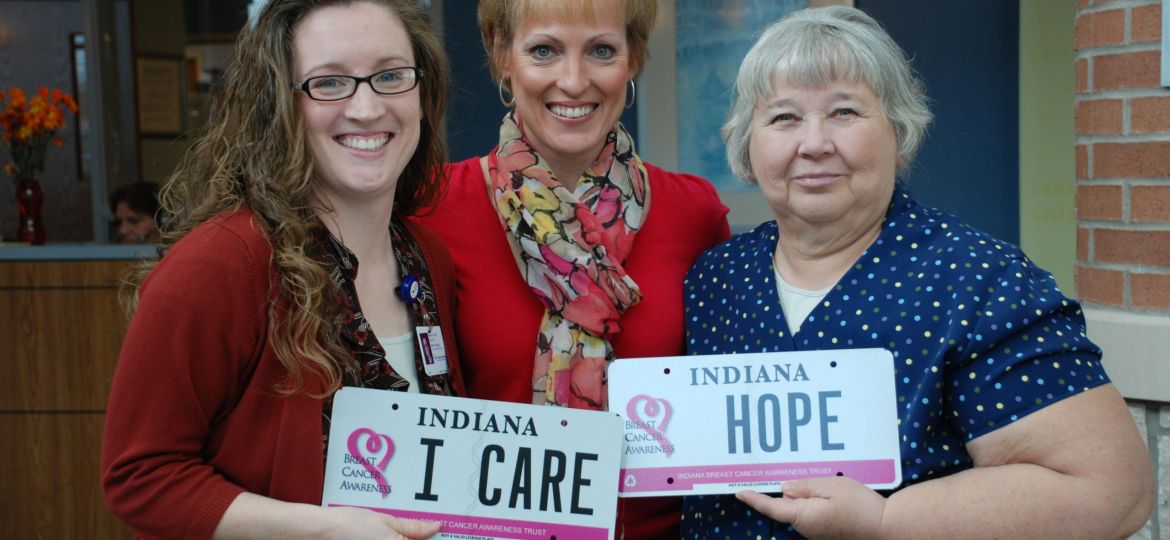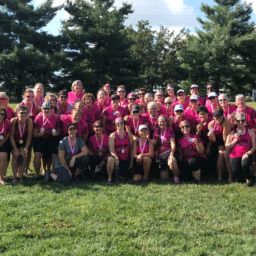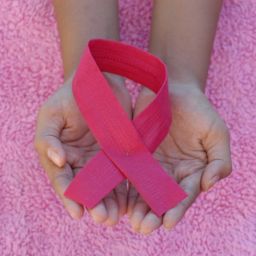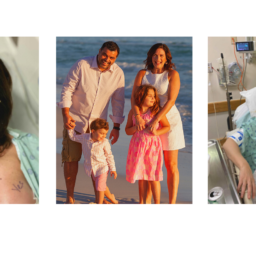
In partnership with Indiana Breast Cancer Awareness Trust (IBCAT).
You’ve seen them on cars all over town and maybe even purchased one yourself, but do you know the inspiring story behind the pink heart license plate?
It all started with a breast cancer survivor who was given six weeks to live after her diagnosis. Instead, she lived for almost 20 years.
Nancy Jaynes, who lived in Plymouth, Indiana, was 43 when she was diagnosed with breast cancer in 1997. Instead of laying low, Jaynes decided to take action so that more people might survive via early detection. Specialty license plates were gaining popularity, so Nancy envisioned one that would not only raise money for the cause but act as a “moving billboard” to remind viewers to schedule their mammograms.
 In those next few years, Nancy spearheaded a grassroots movement along with members of the Breast Health Awareness League whom she lovingly referred to as the “Passionate People of the Plate.” The organization later became the Indiana Breast Cancer Awareness Trust. In 2000, this small but mighty group of people arrived on the steps of the Indiana Statehouse to push for the legislation that would allow for an official breast cancer awareness plate. They succeeded: the first plates were sold in 2002, and annual sales reached 4,000 by the end of 2003. By 2005, the organization was able to administer grants to nine Indiana agencies providing breast cancer care education and screening services.
In those next few years, Nancy spearheaded a grassroots movement along with members of the Breast Health Awareness League whom she lovingly referred to as the “Passionate People of the Plate.” The organization later became the Indiana Breast Cancer Awareness Trust. In 2000, this small but mighty group of people arrived on the steps of the Indiana Statehouse to push for the legislation that would allow for an official breast cancer awareness plate. They succeeded: the first plates were sold in 2002, and annual sales reached 4,000 by the end of 2003. By 2005, the organization was able to administer grants to nine Indiana agencies providing breast cancer care education and screening services.
Nancy survived much longer than her doctors had predicted. She spent the last 11 years of her life dedicated to this cause and the Passionate People of the Plate. When she died in 2008, she left behind the legacy of the Indiana Breast Cancer Awareness Trust, as well as proof of the power of grassroots advocacy. In 2015, IBCAT sold 20,757 plates, an all-time high. And over the 15 years since they began giving out grants, they were able to award $5.5 million to scholarship recipients and grantee organizations.
Breast cancer is not the hot topic it used to be in the media, and IBCAT’s plate sales have declined tapered off in the last five years. But one in eight women is still diagnosed with the disease yearly, and besides skin cancer, it’s the most common cancer among women regardless of race or ethnicity. In 2019, an estimated 41,760 women and 500 men died from breast cancer, proving that the disease still affects families every day.
However, the four-year survival rate is 95% or greater in those diagnosed with Stage 1 (early stage) breast cancer of all types, meaning the chances of survival are exponentially higher with early detection.
That’s why the people at IBCAT are so passionate about their mission. Today the organization still raises money exclusively through the sale of pink ribbon heart license plates, directly funding breast cancer services like mammograms for uninsured, underinsured, and otherwise disadvantaged Hoosier women. They also accept donations, but they make a point not to compete for federal breast cancer research funding with other Indiana breast cancer agencies for fundraising dollars.
Each license plate costs $40 (tax-deductible) and can be purchased through the Indiana Bureau of Motor Vehicles. Then, $25 from the proceeds of each license plate sale goes directly to IBCAT and is distributed to grantee organizations that provide direct breast cancer care screening, diagnostic and support services, as well as college scholarships. One such organization is Gennesaret Free Clinic in downtown Indy, which provides clinical exams and also supports patients already in the throes of their fight with cancer.
For example, according to their 2019 grant report, the clinic was able to help two women who had to stop working during their treatment. One woman became homeless, and Gennesaret helped her pay her motel bill, and storage expenses, helped her apply for subsidized housing and paid the rental deposit and moving expenses.
“Another woman diagnosed through our program was considering not doing chemotherapy because she didn’t want to lose her hair,” the grant report said. “We helped her rent equipment for cold cap therapy, which can reduce hair loss.”
So these pretty plates are more than just a pop of pink for your sedan. They’re the legacy of a woman who showed us what’s possible through grassroots advocacy and whose efforts have improved the lives of thousands of Hoosier families affected by cancer. Next time you get your plates renewed, consider giving that extra $40 for a Breast Cancer Awareness Plate. Local women and their families will thank you.





